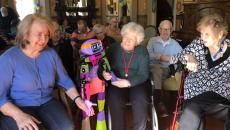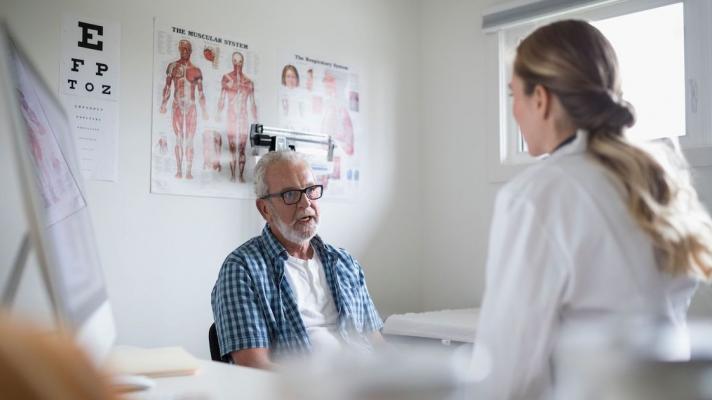
Photo: William Geddes/Getty Images
A research project led by researchers from the University of Melbourne will be receiving A$2 million ($1.3 million) in funding and support from Google.org.
The MATCH (Music Attuned Technology - Care via eHealth) project is one of the 15 projects selected for the $25 million AI for the Global Goals grant, which seeks to help organisations accelerate progress towards meeting the United Nation's Sustainable Development Goals.
MATCH provides music-based interventions to regulate the mood of users with dementia, thereby preventing the development of or the severity of challenging behaviours.
WHAT IT'S FOR
The Google.org grant will support the project's development of wearable sensors and AI-enabled music adaptive systems.
The first component of the MATCH project – a prototype of a training package app for caregivers with a curated list of music that enables targeted intervention – has already been developed. With the grant, a music-adaptive system will be developed and integrated with this existing prototype app.
According to a media release, the AI system will learn each user's unique agitation behaviours and positive music interventions using wearable sensors, along with observation, analysis, and music treatment. The user's preferred music will then adapt to synchronise and treat their agitation.
"We will be able to develop a device, similar to a smartwatch, that can monitor movement, heart rate and other biomarkers. Should it detect signs of agitation, the app will play music from a curated playlist designed to soothe and calm them. If the initial music choice isn’t effective, it will continue to change tracks until the person’s state stabilises," University of Melbourne professor Lars Kulik, who leads the AI development and integration of sensor data in the MATCH project, further explained.
Moreover, the fresh grant will also fund the MATCH app's pilot in Australia in preparation for a global rollout in the future.
MATCH was also recently awarded an A$156,000 ($100,000) grant from Aged Care Research and Industry Innovation Australia to support its new study. Called MATCH-H, the study will focus on implementing the MATCH Music Training Program in a specialist advanced dementia inpatient hospital unit.
WHY IT MATTERS
According to the University of Melbourne, about nine in 10 of all people living with dementia in the world today display agitation, which is recognised as a challenging symptom that can lead to physical and verbal aggression, distress to families and professional carers, and ultimately, poorer quality of life.
Access to music and art therapy, which helps relieve agitation among people with dementia, has been recommended by the Australian government’s Royal Commission into Aged Care Quality and Safety to be provided by every aged care centre in Australia by July 2024. However, the present shortage of music therapists poses a challenge in meeting this recommendation.
The MATCH project is overcoming this hurdle by combining music with wearable sensors and AI to create a music-adaptive system for the early detection and treatment of agitations.
Researchers claim that their music attunement intervention has the potential to lessen agitation as well as reduce the costs of care per person with dementia. Carers can also do away from pharmacological interventions, which can increase confusion and other side effects for patients.
The research team is now seeking residential aged care homes and people living with dementia at home to participate in the testing of their prototype app and upcoming music-adaptive system.
MARKET SNAPSHOT
Recent innovations in neurotechnology also use AI to measure the progression of Alzheimer's disease, the most common form of dementia. Early this year, CSIRO researchers, together with the Queensland University of Technology, introduced what could be the world's first AI-based benchmark for measuring brain atrophy, which appears years ahead of the onset of Alzheimer's symptoms.
Outside Australia, Fujifilm has also developed an AI tool that can predict whether patients with mild cognitive impairment will advance to Alzheimer's disease within two years.
ON THE RECORD
"Many carers of people with dementia recognise music’s value in supporting the wellbeing of a loved one. We are working to create a better everyday life for people living with dementia, their families, and carers on the dementia journey using the proven therapeutic benefits of music, alongside wearable sensors and AI," said Felicity Baker, University of Melbourne professor and principal investigator of the MATCH project.











def4.jpg)








